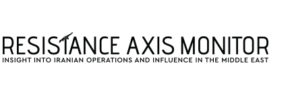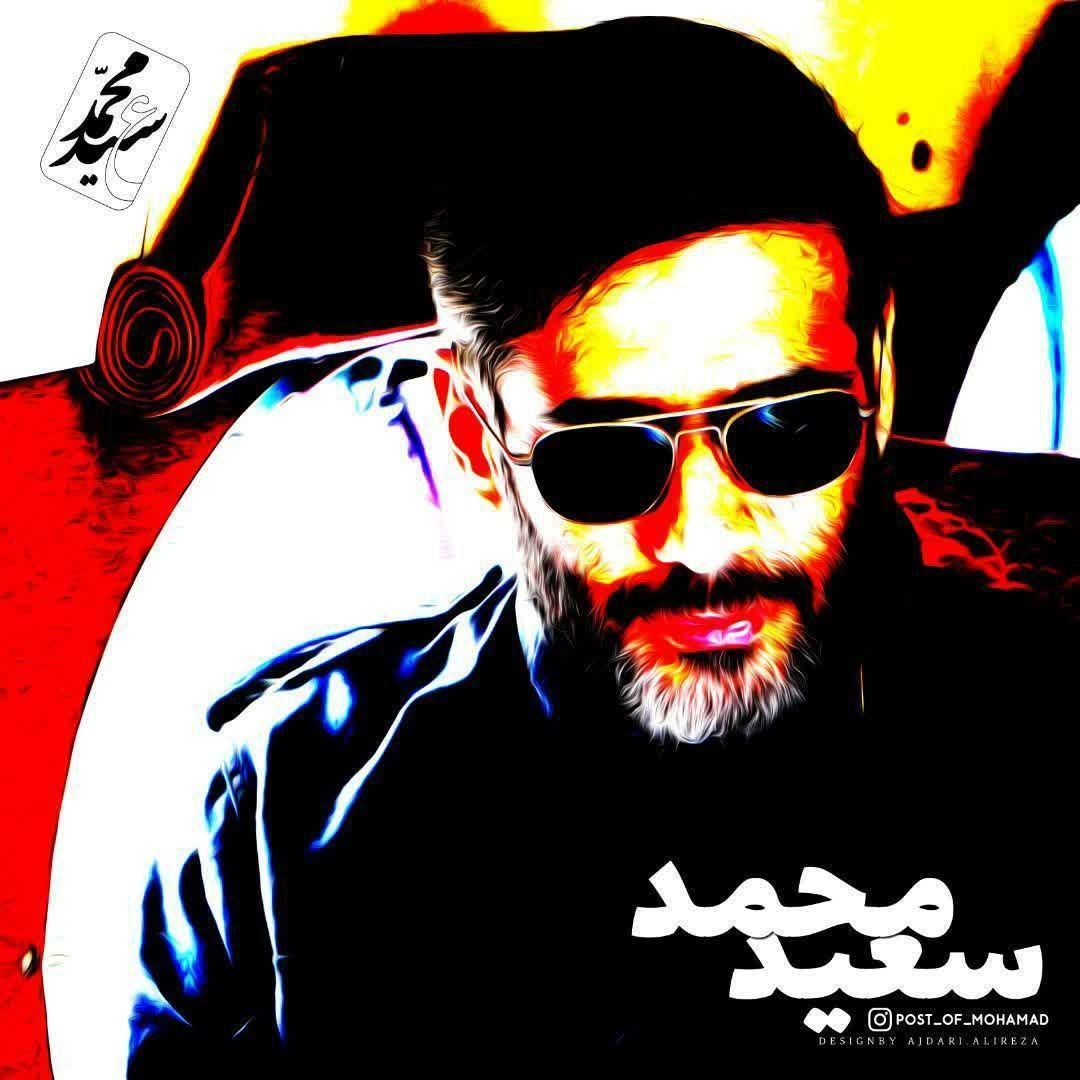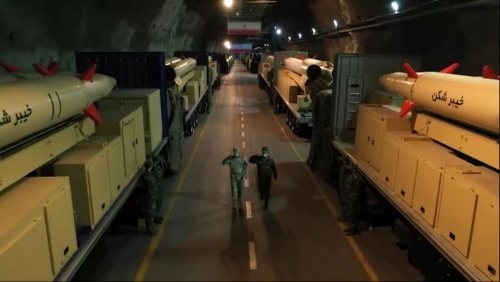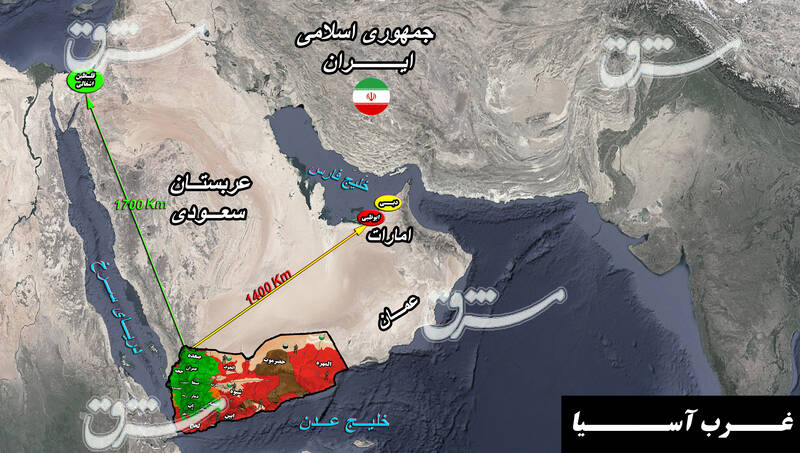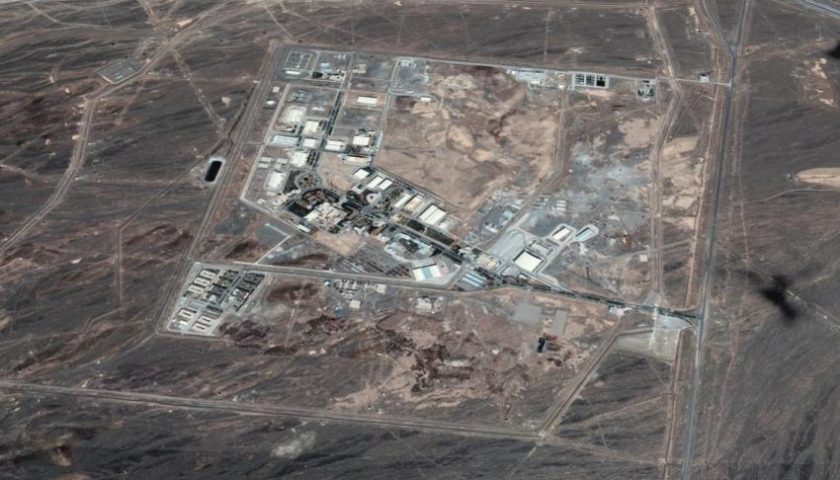Controversy After Javani Alleges Mohammad Removed From IRGC Engineering Chief Post Following Election ‘Violations’ On 3 April, Islamic Revolution Guard Corps (IRGC) Political Deputy Yadollah Javani gave an interview to IRGC-linked Fars News. In it, he alleged that presidential hopeful Sa’eed Mohammad was “relieved of his duties” as IRGC Khatam al-Anbia Construction Base (KAA) chief last month due to “violations and not observing regulations” about taking the “legal steps” for participation in presidential elections slated for June. Javani said that the IRGC has not and would not support Mohammad “or any other candidate” in elections.
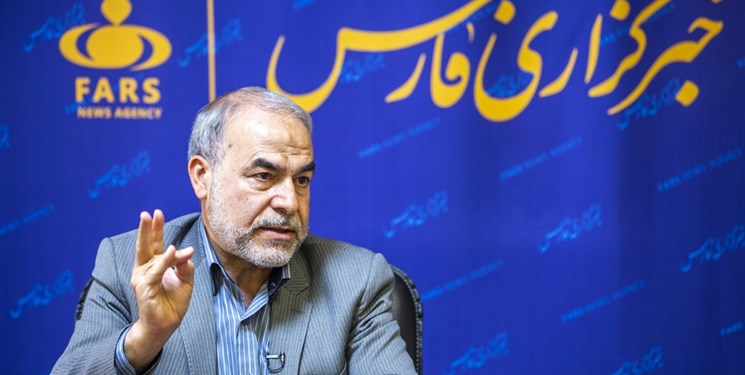
Iranian Students’ News Agency (ISNA) carried a statement attributed to Mohammad’s office in response to Javani’s interview, which said that Javani “is not a spokesman” for the Guard Corps, and that his statement “has been unfortunately used by opposition media to harm the sacred stature” of the IRGC. However, Mohammad’s campaign via its Telegram channel denied that the office had issued that response. The campaign said that Mohammad does not plan to release a statement for now in order to not allow “the opposition and enemies of the revolution to take advantage of it,” but that he would “make the necessary illuminations in time.” The presidential hopeful’s campaign said that Mohammad had presented his resignation offer three times, rejecting that any violations took place, and said that “delay in accepting resignation has created this doubt!”

The campaign released a series of statements accusing a “certain movement” of seeking to force Mohammad’s exit from presidential race, defended Mohammad’s “legal” resignation, and criticized Fars News. It also endorsed a message that criticized Javani, and added that Mohammad was the reason for revealing the notorious corruption associated with Yas Financial Holding, after which several IRGC commanders have been tried and sentenced. The campaign demanded that Javani answer “who were the corrupt commanders in the arena of holdings tied to IRGC Cooperative Foundation, and what relationship is there between them and [Javani’s political] directorate?!”
When Mohammad announced his resignation from KAA chief last month to run for office amid rumors that he was removed because of misconduct, Iranian media reported that IRGC chief Hossein Salami appointed Mohammad as his adviser. The campaign highlighted that position several times on its social media channel in order to push back against accusations of misconduct.
On paper, Javani answers to the Supreme Leader’s Representative to the IRGC, Hojjat ol-Eslam Abdullah Haji-Sadeqi.
Also on 3 April, IRGC Spokesman Ramezan Sharif reacted to Javani’s allegation, saying “anyone who says there’s a violation must precisely say what it was. A corps deputy’s interpretation was that a violation took place, but that may not be the corps’ official position. Maybe this was Mr. Javani’s interpretation. It’s possible that Mr. Javani will even deny his statement.” Sharif was asked if Javani’s allegation is linked to “differences in top corps levels about Sa’id Mohammad’s report against commander Isa Sharifi,” former deputy to then-Tehran mayor Mohammad-Baqer Qalibaf, who was just sentenced to 20 years on corruption charges related to the Yas Holding case. Sharif replied, “these are various speculations…The order of Sa’id Mohammad being adviser [to IRGC overall commander] is official; it is announced and it is accurate…there’s a lot of instances of [speculation and rumors], and everyone says their own thing.”
On 31 March, some accusations were published against Mohammad by a pro-Khamene’i Telegram channel that some reports have described as linked to Mehdi Ta’eb, the director of pro-Khamene’i think tank Ammar Base and brother of the IRGC Intelligence Organization Director, Hossein Ta’eb. The post claimed, “fresh reports say that the Guardian Council will reject commander Sa’id Mohammad’s qualification to become nominee in in the presidential elections,” adding that “since the removal of an individual from command post in military organization is an indication about a person’s lack of qualifications, Sa’id Mohammad no longer has the capability and qualification to continue being present in election activities.” The channel accused Mohammad of “early electioneering, mafia-like money throwing, taking advantage of the capabilities” of the IRGC and the Basij, and “appropriating” the activities of KAA’s activities for his own person benefit in the elections. The channel recommends the “friendly revolution movement” that has an “optimistic and simple-like opinion” toward Mohammad to focus its energy on supporting “true revolutionary and jihadi candidates.” (Fars News, Khabar Online, Telegram, Ruydad 24, Kayhan London)
Former Qalibaf Deputy, IRGC Commanders Sentenced To Prison On Corruption Charges On 17 March, Armed Forces Judiciary Organization announced that the Supreme Court upheld a ruling by the Tehran Military Court sentencing several individuals including former IRGC commanders to prison on corruption charges related to Yas Financial Holding, which was a subsidiary of the IRGC Cooperative Foundation. The Independent Persian published a detailed report about the convicted individuals that included Isa Sharifi, former IRGC commander and Tehran Mayor Mohammad-Baqer Qalibaf deputy, Mamoud Seyf, former IRGC Intelligence Organization Economic deputy, and Mas’ud Mehrdadi, IRGC Cooperative Foundation economic deputy. Sharifi was sentenced to 20 years, Seyf to 30 years, and Mehrdad to 2 years.
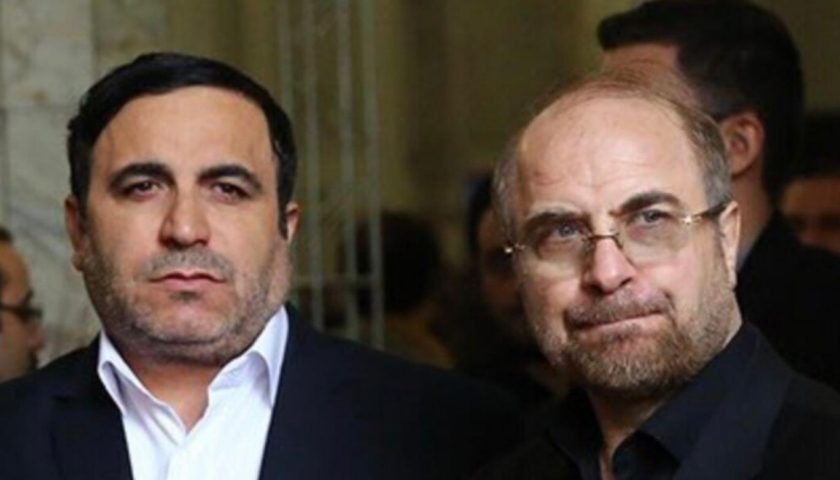
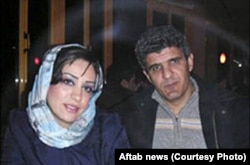
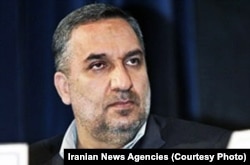
Mehrdadi has been often called the “brain” behind the IRGC “economic empire” because he sat on the executive committee of several IRGC-controlled businesses and conglomerates like the Telecommunication Company of Iran and Ansar Bank.
Yas Financial Holding was reportedly formed with the support of Mojtaba Khamene’i, the Supreme Leader’s son, and IRGC Intelligence Organization chief Hossein Ta’eb. It was active in contracts with Tehran Municipality, Islamic Republic of Iran Broadcasting, and circumventing sanctions. The holding was dissolved in 2017 following revelation of massive corruption, which with the FOREX at the time was valued in billions of dollars.
Former media executive and Islamic Republic of Iran Broadcasting (IRIB) director Mohammad Sarafraz said in his memoire published in 2019 that Mojtaba Khamene’i and Ta’eb pressured him so that Yas Holding could acquire massive IRIB contracts. Sarafraz recounts that his protests were met with indifference from the Supreme Leader, and that he resigned in 2016.
There are reports that former IRGC Overall Commander Mohammad-Ali Ja’fari and former IRGC Coordination Deputy Jamaleddin Aberumand were also involved in the Yas Financial Holding scandal. In 2018, Ja’fari appointed Aberumand, who was Coordination Deputy for more than a decade, to IRGC Soft War Base deputy. The following year, Khamene’i removed Ja’fari and placed him in IRGC Baqiatollah Social and Cultural Base, which is focused on cultural and media activities. In 2020, Qalibaf appointed Aberumand as an aide. (IRNA, The Independent, Radio Farda, Pezhvak-e Iran, Fars News)
Larijani Adviser Discusses $450 Billion in Strategic Cooperation Agreement With China, Says China Disinclined To Publish Full Texts Because of Defense-Related Sections On March 26, Mansour Haqiqatpour – former Qods Force commander and current adviser to Ali Larijani, former Parliament speaker and current adviser to Supreme Leader Ali Khamene’i – said in an interview that the 25-year Iran-China strategic cooperation agreement involves $450 billion Chinese investment that could cause “transformation” in Iranian economic sectors. Haqiqatpour credited the agreement with putting Iran in the Silk Road Initiative. He added that 15 committees overseen by Ali Larijani, the lead negotiator in the China talks, would evaluate Chinese investment proposals in a variety of sectors like ports, energy, renewable energy, mining, higher education. Larijani’s adviser added that the agreement is “win-win” for Iran and China.
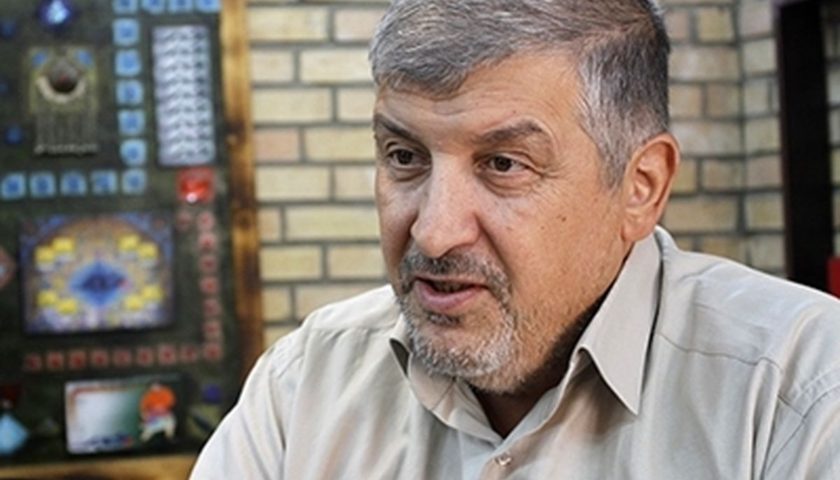
Pushing back against accusations that Iran made many concessions to China, Haqiqatpour said that the strategic cooperation agreement involves more than $100 billion in mining projects so that “our mines replace our oil [revenue].” He added that Iran could become the corridor between “north, south, east and west.” Haqiqatpour noted that “we [can] transform oil to petrochemicals, and sell petrochemicals through China.”
Larijani’s adviser declared that Beijing is disinclined to publish the full text of the agreement because of its “defense part,” and that “China and other countries have challenges with America, and we could not declare [the section] openly.”
Haqiqatpour said that Larijani was tasked by the Supreme Leader to represent take the lead in the China strategic agreement talks because Beijing was “upset” at the Ruhani administration for “delays” in joint business projects following the Joint Comprehensive Plan of Action (JCPOA). He added that that initial idea for the strategic cooperation agreement was made by Khamene’i during the meeting with Chinese President Xi Jinping in Tehran in 2016.
Haqiqatpour said that Larijani, after retiring from the Parliament last year, proposed to the Supreme Leader that current Speaker Mohammad-Baqer Qalibaf could continue the China negotiations. Khamene’i declined that offer and issued a written order for Lairjani to continue the negotiations, according to Haqiqatpour.
Haqiqatpour stressed that, despite much speculation, Larijani has no intention to run for president this year. (Jamaran)
For First Time, LEF UAVs To Fine Vehicles, Monitor Traffic; Senior Officials Calls For More Modern Technology For ‘Missions’ On 2 April, Law Enforcement Forces (LEF) Deputy Commander Qasem Reza’i announced that police deployed unmanned aerial vehicles (UAVs) to fine more than 100 vehicles and to monitor transportation routes during new year holidays, adding the necessity of development more “modern technology” to “conduct missions.” (Tasnim News)
Line of Hizballah Publishes Previously Unreleased Khamene’i Statement on Producing Online Content On 1 April, Line of Hizballah, a weekly published by the Office of the Supreme Leader, carried on its front page the Supreme Leader’s complaint during his Iranian new year address that Islamic Republic officials had not heeded his calls and advice for ensuring that cyber space serves “the benefit of the nation’s values.”
The weekly also published a previously unreleased statement by the Supreme Leader made before the Supreme Cyber Space Council on 23 January 2018, which was after the peak of the nationwide 2017-2018 protests. At the time, Khamene’i said that “we have useful individuals for producing social contents,” and “we have religious seminaries, the hands of which are completely open this regards.” Khamene’i added that “we have some universities.” He called on the council to “strengthen the system for the production of content; we need this matter.” (Office For The Preservation and Publication of The Works of Grand Ayatollah Khamene’i)
Lebanon
Al-Akhbar: America to Blame for Lack of Syrian-Lebanese Maritime Border Demarcation The Syrian government signed a 4-year contract with a Russian company for oil and gas exploration in the Mediterranean Sea in two blocks which overlap with Lebanese maritime areas for energy exploration along the latter country’s northern border. According to this demarcation, Syria seized 750 square kilometers of Lebanon’s maritime territory from Block No. 1 alone, where the Russian exploration process will begin. Lebanon had previously demarcated its maritime borders in 2011, and in 2014 launched a round of primary licenses and invited bids for Block No. 1 in the north. But Syria did not recognize the Lebanese demarcation.
While Lebanese officialdom has remained largely silent over this violation of Lebanon’s sovereign waters, pro-Hizballah mouthpiece Al-Akhbar has attempted to downplay the matter and ultimately blame the United States. Al-Akhbar’s op-ed, titled “The Maritime Borders With Syria: a Baseless Problem,” claimed that politicians taking umbrage over the matter were continuing their hostile politicization of everything relating to Syria “because of their enmity towards it.”
The op-ed stressed that there was “definitely no theft of even a single kilometer [of Lebanese] waters,” and that all that was required to resolve this dispute – which had only arisen because each of Lebanon and Syria had adopted different demarcation methods – was direct negotiation. However, Al-Akhbar stressed that this was impossible until the Lebanese State “liberates itself from American terror tactics, breaking the siege, and immediately restoring relations with Damascus to their natural course.” (Al-Akhbar, 961 News)
Nasrallah Eulogizes Pro-Hizballah Sunni Sheikh Ahmad al-Zein In a speech on 31 March, Lebanese Hizballah Secretary-General Hassan Nasrallah eulogized Sheikh Ahmad al-Zein, a Sunni cleric who was the chairman of the board of trustees of the Hizballah-controlled Gathering of Muslim Scholars.
Nasrallah lauded sheikh Al-Zein – who had once described Ayatollah Ruhollah Khomeini as “the greatest figure of the 20th century – for his steadfast support of “resistance” and confrontation of America’s and Israel’s “regional projects.” Nasrallah also noted that when the Islamic Revolution prevailed in Iran, Al-Zein was one of the first to express his support for the Revolution and declare his allegiance to Ayatollah Khomeini. This loyalty to the Islamic theocratic system ruling Iran even earned the late Sheikh al-Zein a eulogy from current Iranian Supreme Leader Ali Khamenei, who said in a letter to Nasrallah that, Al-Zein’s “responsible and wise defense of Imam Khomeini’s movement, his resistance against the front of Arrogance and Zionism, and his years-long steadfast support for the struggles of the peoples of the region against Arrogance, will not be erased from the memory of the Resistance.”
As is his custom, Nasrallah pivoted in his speech to other pressing regional and domestic issues. He first turned to Yemen, where he claimed a new media war was being launched against the oppressed people of that country that framed Saudi Arabia as interested in a ceasefire, and with the Houthis rejecting it. He said the “deceptive media” was alleging that the Houthis were being obstinate because they want to tie the future of Yemen to nuclear negotiations with Iran. “There is great deception and unfairness in this,” Nasrallah said. He claimed the Yemenis weren’t being offered an end to war, but subjugation to Saudi Arabia, and the continuation of the siege on Yemen.
Nasrallah again turned to the issue of the “Deal of the Century” – the Israeli-Palestinian peace plan proposed by the Trump administration – claiming it had failed, and therefore nothing was being heard of it anymore. This is a recurring theme in many of Nasrallah’s speeches, in which he emphasizes that the steadfast rejection of the Deal by Palestinians led to its demise. Nasrallah also stressed Hizballah’s readiness to confront Israel, claiming the latter was deterred by his group’s actions and military prowess.
Nasrallah then turned to the United States, which he said was too occupied with bigger issues, including Russia, China, and its domestic affairs, to devote energies to the Middle East. He also stressed that the United States was on the way to its downfall, and that it is in a stage of “decline and waning, while the Resistance’s path in the region was on the rise.” He therefore issued a call on the countries and peoples of the region to resolve their own issues, and not await the United States or the international community to intervene. (Al-Manar, BintJbeil.Com, Mehr, Al-Alam)
